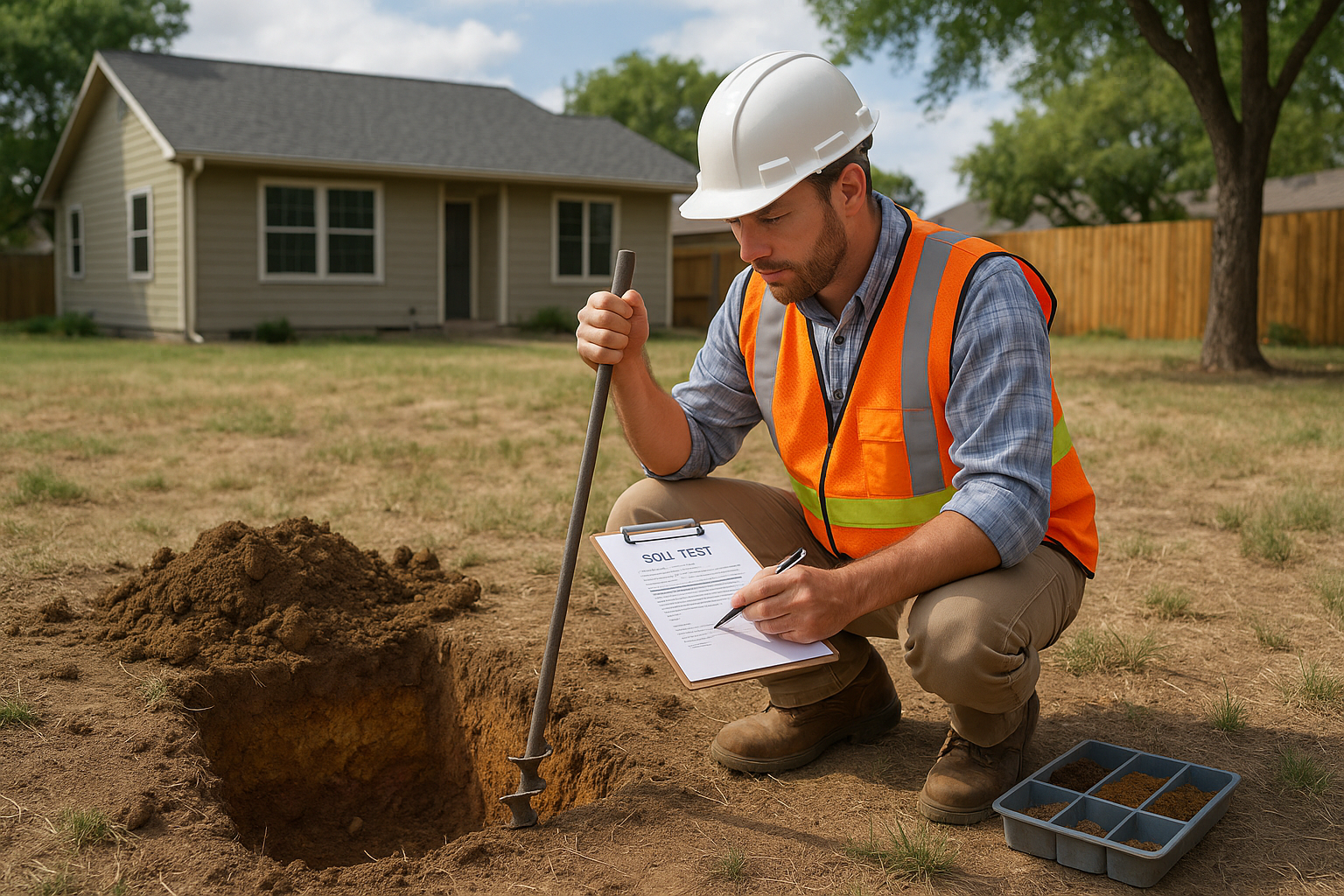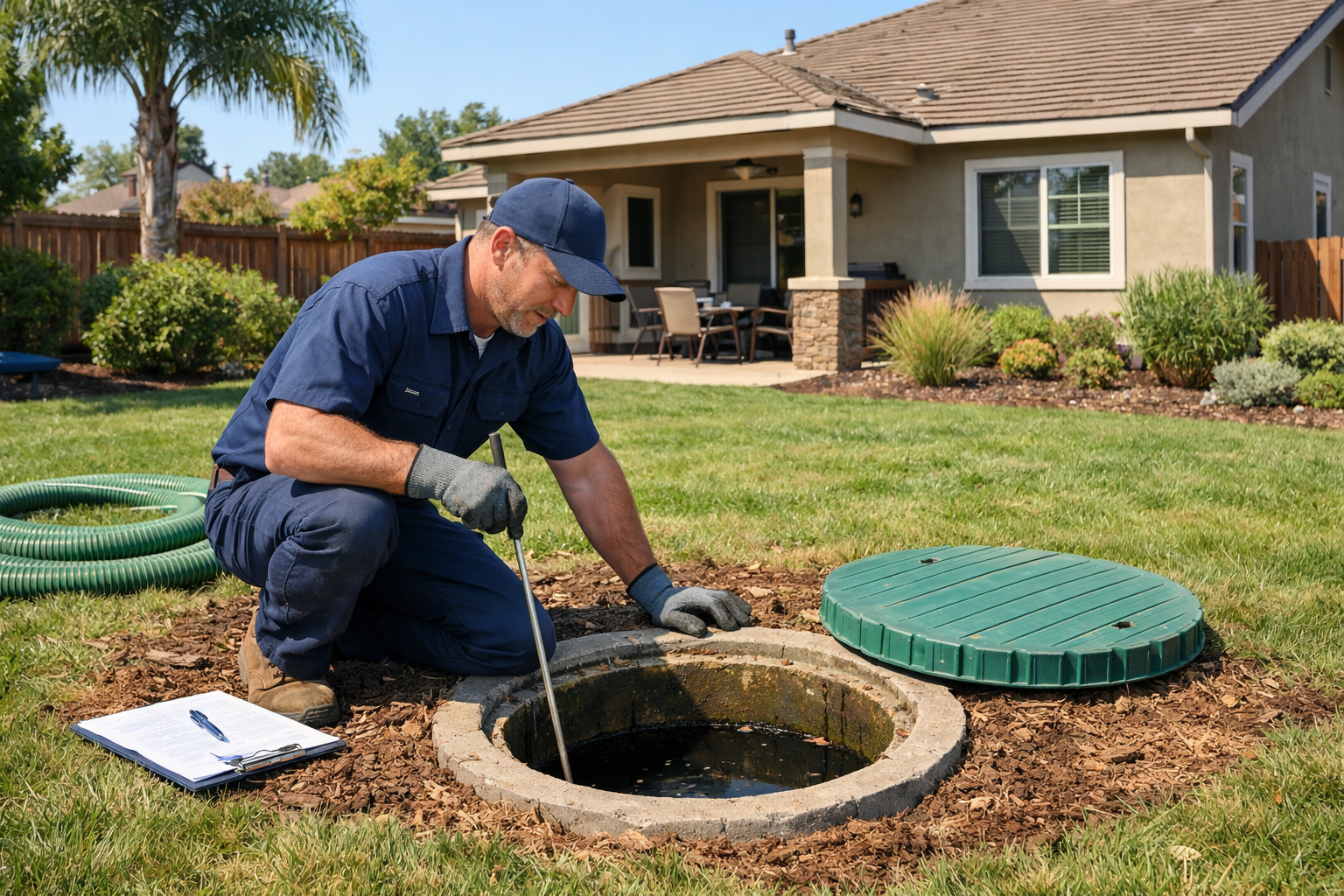When it comes to rural or suburban properties, an efficient septic system design is one of the most crucial yet often overlooked aspects of homeownership. In Sacramento, CA, where many homes lie beyond city sewer lines, a properly planned septic system isn’t just about convenience: it’s about safety, efficiency, and long-term value.
Understanding how your system is designed helps you make informed decisions about installation, maintenance, and upgrades. Whether you’re building a new home or replacing an outdated system, knowing the essentials of septic systems design ensures your property meets local environmental standards and functions reliably for decades.
In this guide, you’ll learn what every Sacramento homeowner should know about septic system design, including how it works, what affects performance, and how to make choices that protect your home and the environment.
Understanding Septic System Design Basics
A septic system is a self-contained wastewater treatment system used in areas without municipal sewer service. The design of a septic system determines how efficiently it handles household wastewater, from toilets to laundry discharge — especially important for commercial laundromat septic systems design, where volume and flow are higher.
Key Components of a Septic System
- Septic Tank: The main chamber where solid waste settles and begins decomposing through bacterial activity.
- Drainfield (Leach Field): A network of perforated pipes dispersing liquid waste (effluent) into the soil for natural filtration.
- Soil and Percolation Area: The soil beneath the drainfield filters contaminants before they reach groundwater, making infiltrator septic system design crucial for proper absorption.
Why Design Matters
A poorly designed system can lead to backups, odors, groundwater pollution, and expensive repairs. In contrast, a well-designed system considers:
- Soil composition and absorption rate
- Household water use
- Property slope and drainage
- Local building and septic system design standards
In Sacramento County, health regulations dictate specific standard septic system design requirements, such as system size, setbacks, and soil permeability. Hiring licensed septic system designers ensures your system meets local codes and maximizes efficiency.
The Complete Guide to Septic System Design and Installation
Designing a septic system involves careful planning, soil science, and environmental safety. Below is a step-by-step breakdown for Sacramento homeowners planning a new septic system design or replacement.
1. Site Evaluation
Before designing a septic system, a certified professional conducts a detailed site and soil evaluation, including:
- Percolation Test (Perc Test): Determines how quickly soil absorbs water.
- Topographic Mapping: Identifies slopes, drainage, and potential flooding.
- Setback Analysis: Ensures compliance with minimum distances from wells, property lines, and structures.
Soil type plays a major role: clay soils may require alternative old septic systems designs such as mound or sand filter systems, while loamy soil supports traditional gravity-fed setups.
2. Selecting the Right System Type
Depending on your property’s conditions, your designer will recommend one of several system types:
- Conventional Gravity System: Works best on flat lots with well-draining soil.
- Pressure Distribution System: Pumps effluent evenly to prevent oversaturation.
- Mound System: Built above ground where soil doesn’t absorb well.
- Aerobic Treatment Unit (ATU): Uses oxygen to enhance breakdown, ideal for compact lots or environmentally sensitive areas.
These septic system design drawings determine layout, flow, and maintenance needs, ensuring the design fits your site and usage.
3. System Sizing and Layout
Proper system sizing depends on:
- Number of bedrooms (a proxy for household size)
- Average daily water use
- Soil absorption rate
For instance, a three-bedroom home in Sacramento County typically requires a 1,000-gallon tank and about 450 square feet of leach field, depending on site tests.
4. Design Approval and Permitting
All septic system designs in Sacramento must be approved by the Sacramento County Environmental Management Department before installation. This ensures compliance with public health and environmental standards set by agencies such as EPA.gov.
5. Installation and Inspection
Once approved, a licensed contractor installs the system based on the design. Before covering the trenches, the county inspector verifies slope, materials, and connections.
If issues arise, Blue Ribbon Septic provides professional tank locating and outlet baffle replacement services to ensure your system meets performance standards.
6. Post-Installation Testing
After installation, hydraulic load testing confirms your system’s ability to handle expected wastewater volumes effectively and safely.
7. Maintenance and Long-Term Care
A properly designed system can last 25–40 years with regular pumping and inspection. Simpler designs often mean fewer maintenance needs.
To extend your system’s life:
- Schedule septic tank cleaning and pumping every 3–5 years.
- Avoid flushing non-biodegradable items.
- Keep surface water away from your drainfield.
For annual inspections, contact Blue Ribbon Septic, Sacramento’s trusted experts in designing a septic system, installation, and long-term maintenance.
Real-World Examples of Septic System Design in Sacramento, CA
Design choices vary based on soil type, property layout, and usage. Below are common examples seen across Sacramento County.
Rural Property with High Clay Soil
In northern Sacramento, clay soils often require mound or infiltrator septic system design to manage poor absorption and ensure proper wastewater treatment.
Small Suburban Lot
Compact lots may not have room for large drainfields. Here, aerobic treatment units (ATUs) and drip dispersal fields are effective, providing a smaller footprint without compromising safety.
Agricultural Property
For farms or multi-structure properties, split-system setups help manage household and agricultural wastewater separately, maximizing efficiency.
These cases demonstrate how expert septic system designers tailor solutions to each property’s unique conditions.
Expert Tips and Common Mistakes to Avoid
Even minor design mistakes can create long-term issues. Here’s what experts recommend:
Do:
- Hire licensed septic system designers and installers.
- Schedule lift station pumping as part of regular upkeep.
- Monitor household water usage to prevent system overload.
Avoid:
- Planting trees near your drainfield.
- Parking vehicles on top of the drainfield.
- DIY alterations without proper permits.
Regular care, such as real estate septic system inspections, ensures compliance and reliability for years to come.
The Bottom Line: Investing in a Smart Septic Design
A thoughtful septic system design isn’t just a county requirement: it’s an investment in your property’s safety, efficiency, and resale value. In Sacramento, CA, environmental protection and groundwater safety are top priorities, making it essential to partner with an experienced local provider.
Blue Ribbon Septic offers expert services for septic system design, maintenance, and upgrades that comply with Sacramento County standards and deliver long-term performance.
Learn more about how septic tanks work in Sacramento or contact the Blue Ribbon Septic team today for professional advice tailored to your property.
FAQs About Septic System Design
1. How much does septic system design cost in Sacramento, CA?
Most designs range from $800 to $2,000, depending on site conditions and system complexity.
2. How long does it take to design and install a septic system?
Typically 4–8 weeks, depending on soil testing, permitting, and contractor availability.
3. Can I design my own septic system?
No. Sacramento County requires designs from licensed septic system designers or engineers.
4. How often should my system be inspected?
Annually, or sooner if you notice slow drains, odors, or damp areas in the yard.
5. What type of septic system is best for clay soil?
Mound or sand filter systems are most effective for clay-rich soil conditions.






